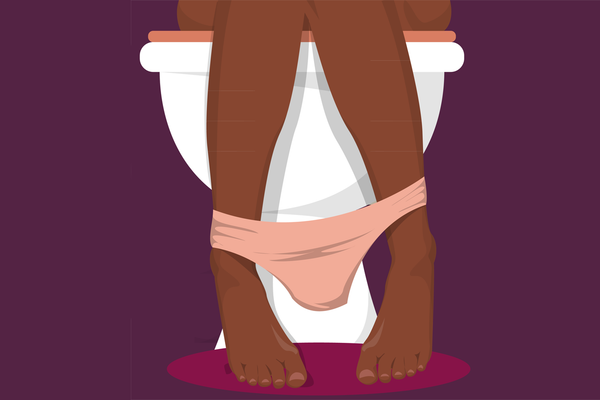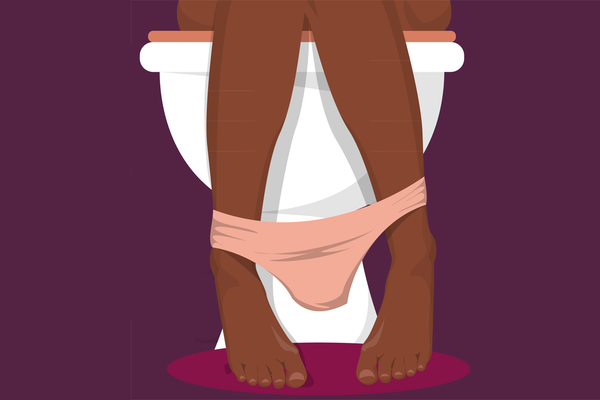No matter how comfortable we are with our bodies, we all have times where we question how we smell down there. You've likely thought to yourself at some point, "Do I smell normal?" "And what's normal anyway?"
Everyone's vaginas, even healthy ones, have their own special scent. Still, that below-the-belt area sometimes gets a bad rap. "People think the vagina is the dirtiest place on the planet," says Alyssa Dweck, MD, assistant clinical professor in the Department of Obstetrics, Gynecology and Reproductive Science at the Mount Sinai School of Medicine in New York City and author of The Complete A to Z for Your V. "More bacteria are in our mouth than in our vagina."
She says that the vagina has particular smells, which vary from person to person, influenced by your clothing's material, your diet and how much you're hydrated.
Education is important when it comes to feminine hygiene. You likely learned about your body from an array of sources—school, the Internet, BFFs, your mom. Chances are, though, some feminine hygiene skills were never taught to you or have evolved over time. Read on for some helpful tips.
Keep the vagina clean and dry
Cotton is breathable, making it an ideal fabric selection for underwear. It can down on moisture as it keeps your skin cool and dry. With breathable fabrics like cotton, you have a reduced risk of bacterial growth and infections. On the flip side, fabrics like satin retain moisture. That reduces airflow, creating irritation and friction. And that encourages yeast and bacteria growth, which can lead to infections. You should also change out of sweaty workout clothing and wet swimsuits to help prevention infections.
Don't douche
Your vagina knows how to take care of itself. It self-cleans and naturally produces some discharge that helps get rid of germs and bacteria from your body. So, douching or using harsh cleaners or soaps can disrupt your natural pH balance and can irritate your vagina and wash away good bacteria. Plus, douching will only mask the smell—not cure what's going on. For example, if your vagina smells like something rotting (such as rotten fish), you may have bacterial vaginosis, a common vaginal infection. Stick with warm water and mild soap on the vulva, Dr. Dweck says. "You don't need to clean the inside of the vagina," she says.
Eat right
Maintaining a healthy diet can do your body and your vagina good. Foods like yogurt with live cultures contain good-for-you bacteria that help promote vaginal health. If you're prone to urinary tract infections, research in Archives of Internal Medicine suggests it may be helpful to take a cranberry supplement daily.
Use fresh towels
Wash and replace towel and washcloths after you use them. Reusing towels isn't wise because bacteria can cling to these surfaces. And that potentially puts you at risk for an infection.
Practice safe sex
The Centers for Disease Control & Prevention says that consistent and correct use of latex condoms reduces the risk of any sexually transmitted diseases that are transmitted by genital fluids such a gonorrhea, chlamydia and trichomoniasis. However, condoms provide less protection against STDs spread through skin-to-skin contact like genital warts, genital herpes and syphilis, says the U.S. Food and Drug Administration. "A condom can only cover so much," says Dr. Dweck.
When condoms don't protect against STDs, it's usually because they're being used inconsistently or incorrectly, not because they failed. For example, some people use a condom just during ejaculation or sometimes have intercourse without a condom, Dr. Dweck says. She adds that you should put a condom on sex toys because certain infections can be transmitted on them. Clean toys with soap and water if the product allows.
Stay clean
It sounds simple but it's important to wipe from front to back until the toilet paper shows no residue. That will help prevent bacteria from getting into the vagina. Change sanitary pads and tampons regularly during your period. If you're wearing panty liners, change them frequently. However, if you wear them all the time, you may have some irritation.
- Summer May Mean More Yeast Infections ›
- Tampons, Pads or Menstrual Cups? What's Right for You? ›
- Simplify Your Feminine Hygiene Routine: Skip the Jade Eggs and Disinfectants ›







